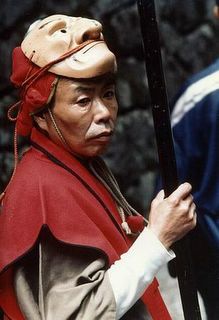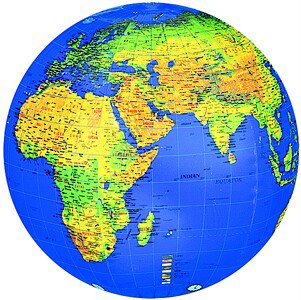 Nikko by Carl Parkes
Nikko by Carl ParkesLast week, the two good fellows who own the incredibly rich franchise known as WorldHum asked their buddy Tom Swick to pen a few notes about the week-long literary fest in Key West, and Tommy Boy came through in spades. Tom can write like your best buddy in your favorite neighborhood bar, who just returned from a wildly successful fishing trip and not only offers you some fresh trout but also his heartfelt advice and colorful stories.
Tom Swick is a great travel writer because he doesn't act or write like a travel writer. He writes like your friend. He attends the conference but seems half indifferent to most of the speakers with the notable exception of Pico Iyer, who dazzles everyone with his stories but mostly his philosophies about life and love and the art and craft of successful travel writing.
Video Night in Kathmandu has always been one of my favorite travel books, though I always wished Pico had made it a plural night. Just sounds better. But I digress.
Tom is such a casual and cool character that he takes the time to chat with street people and street performers, who honestly seem to be more interesting than the windbags going on inside the tent. And he takes notes, and then translates the notes into prose. It is so simple and so honest, so why don't more travel writers use this simple technique? Beats me.
Anyway, Tom filed five reports with WorldHum and all of them are worth reading. Another view comes from another reporter, who found the Key West event all puffed up and full of itself.
I'm a travel writer and have been know to get all full of myself at times, so I understand the dilemma. Talk, boast, pride, SATW awards, and all that other crap you can take with you to the next life. Yeah.
WorldHum Welcomes Tom SwickTom Swick Reports from Key West -- Day OneTom Swick Reports from Key West -- Day TwoTom Swick Reports from Key West -- Day ThreeTom Swick Reports from Key West -- Day FourTom Swick Reports from Key West -- Day FiveAnd then there's this cheerful but revealing follow up story about the Key West event:
Lost amid the aimless speech of renowned travel writers
By Chauncey Mabe
Books Editor
Posted January 15 2006
Sometimes the main purpose of literary events seems to lie in giving writers the opportunity to show how inept they can be when they let their mouths, as opposed to their fingers, do the talking.
Take last weekend's Key West Literary Seminar, which gathered top travel writers for three days of bloviation on the meaning of their profession in the not-so-brave new world of the 21st century.
Keynote speakers Pico Iyer and Tim Cahill offered opposing examples of the way writers can make fools of themselves in talking extemporaneously. Iyer, delivering the opening night's John Hersey Memorial Address, spoke with a rapid, breathtaking grace, tossing off thought-provoking ideas like a parade Santa with a bag of candy.
Which was wonderful. Really, wonderful. And yet Iyer's lecture grew wearisome in its unparsed intellectual weight. Iyer would have been more wonderful still had he perhaps blocked up a few ideas, jotted down an outline, spoken to some specific point.
Cahill, a writer known for his use of humor, also spoke without notes when he took the podium for the John Malcolm Brinnin Memorial Talk on Saturday evening. Judging from the ungainly pauses and vast distances between punch lines, Cahill had never spoken in public before. At least, not in English.
Unintentional amusement was offered by many writers, especially in the naked ego category. Barry Lopez, speaking in tones not heard since Moses descended the mount, said that once we've been to the places he's been, met the people he's met, had the spiritual experiences he's had, then we too can go home in the serene knowledge that everyday life is what really matters.
Kira Salak displayed an appalling ignorance of her own literary tradition, declaring the world is yet to be discovered by women, all the classic-era travel writers having been men. Nothing, of course, could be further from the truth, as the careers of Frances Trollope, Freya Stark and Beryl Markham attest.
That's not to say Key West was anything less than the usual thrilling literary experience. While the great minds on stage never arrived at consensus -- beyond the obvious "the inner journey is what matters" -- they provided much stimulation and entertainment.
Perhaps out of politeness, no one pointed out the obvious flaw in the "inner journey" idea of travel writing, which is that most writers aren't nearly as interesting as they think they are, and surely less interesting than the places they visit. Inner journey, indeed. Tell it to your mom.
To their credit, the writers grappled bravely with what novelist Kate Wheeler called "the costs of travel." Gretel Ehrlich said "almost every ecosystem in the world is in collapse," while Lawrence Millman said the bodies of Inuits are "toxic waste dumps" containing eight times the American average for mercury; all "concerned" travel writers should be radical environmentalists, he said. Others rued the "McDonalds-ization" of the world.
Indeed, the writers even hinted at what became obvious to any attentive listener, which is that travel writing is among the trivial genres. Apart from self-discovery and a cool lifestyle for the writer, what do these journeys and the resulting verbiage mean? More than one writer implied that only by crossing the frontier to journalism does travel writing gain heft. "There is a nobility about making the effort to be a witness" to a troubled world, Wheeler said. "All good writing is reporting," added Eddy Harris.
But the best part of the seminar, as always, lay not with enlightenment, but access. If you weren't satisfied with an author's remarks on stage, you could easily talk to them personally afterward. For example, I found Pico Iyer happily pinned in a corner next to the men's room, signing autographs and chatting. I asked about the morality of travel in an age of global warming, social unrest and terror.
"In the modern world travel does all kinds of damage, it is true," Iyer said. "But there is good, too, just in the fact of going to different places and meeting different people. The rest of the world loves America, but you might not know that if you don't travel.
"I take very seriously the idea of `global neighborhood.' It's good to get out and meet the neighbors."
Chauncey Mabe can be reached at cmabe@sun-sentinel.com or 954-356-4710.
Sun Sentinel Link














